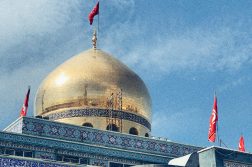Disclaimer: The views expressed within this article are entirely the author’s own and are not attributable to Wessex Scene as a whole.
History was made outside the ancient walls of the Kremlin on December 25th 1991 as the Soviet red flag gave way to the Russia tricolour, marking the collapse of the Soviet Union. Within the space of a year, nearly 300 million Soviet citizens found their country was no more: what would their future hold?
Twenty-one years later, the former Soviet Union comprises fifteen sovereign states, and six states that claim independence but have limited or no intentional recognition. However, for Putin at least, there has been a reluctance to accept this new status quo, with the Belarus protests being the latest in a long line of problems to plague Moscow since 1991.
But why does Moscow care so much about what goes on in places such as Belarus? First, the collapse of the Soviet Union shook many Russians in the view of their nation. Overnight, new borders placed ethnic Russians in new countries in the Baltics, Central Asia, etc, where they were a minority. Russians make up a quarter of the population of Estonia, whilst the Russian language is still spoken amongst many in countries such as Belarus, Ukraine and Kazakhstan. Russian ethnonationalists mourned that their fellow brethren were separated from one another and wished to unite all Russians together again.
The second concern of the Kremlin is the shift of many Soviet states to the West. Latvia, Lithuania and Estonia joined NATO and the EU in 2004, whilst the governments of Georgia and Ukraine have all stated their desire to work towards joining both organisations. Land once seen as part of the great Russian nation are slowly being absorbed into the hands of the perceived enemy.
Finally, Putin fears for the future of his own government. His grip on the country has not come without protests and criticism of his rule. The collapse of his Ukrainian ally, Viktor Yanukovych, in 2014, illustrated that no regime was safe from protests. Putin himself has also come in for a large amount of domestic criticism, on corruption and attacks on the democratic process, among others. The fall of Lukashenko – often known as ‘Europe’s last dictator’ – would risk giving ordinary Russians the idea that they can overthrow Putin.
With all these problems, Russia has attempted to carve itself a secure buffer between itself and the West. The first way has been through soft power diplomacy and influence in post-Soviet states. This has been served through international organisations such as the Eurasian Economic Union, creating a free trading bloc with Russia and other post-Soviet states. With Belarus, ties have gone even further, with the creation of the ‘Union State’, which grants the ability of citizens of both countries to freely move between one another.
However, despite its attempt at soft power diplomacy, Russia’s world has continued to disintegrate. In response, the Kremlin has been increasingly prepared to use military action to ensure the discipline of its neighbours. After voting in a referendum to join NATO in 2008, Georgia found itself at war with Russia over the rebel regions of South Ossetia and Abkhazia. When the war ended, Russian troops remained in the two regions.
When President Yanukovych of Ukraine was overthrown in 2014 and the new government made its intentions known that it wanted to move towards the West, Putin authorised the annexation of the Crimean Peninsula and sent in support for pro-Russia rebels in Eastern Ukraine, a conflict which the UN estimates has left up to 13,000 people dead.
Conflicts in Russia’s borderlands illustrates the simple fact that the Soviet Union is still collapsing thirty years on. December 25th 1991 may have signalled the official end of the Soviet project, but many remnants remained. Putin – the former KGB agent in Berlin – was one such remnant, and sought to make protecting what Russia had left his purpose.
Belarus fits this example of a political remnant of the Soviet Union, with Belarus closely intertwined with Russia’s Soviet and Imperial past. Most Belarusians speak Russian and it is an important buffer between Russia and NATO. Now the Belarusian protests are threatening to destroy one of Russia’s last vestiges of Soviet rule.
Russia is struggling to work in a world that seems to be turning against it. Putin is governing a nation that has many compatriots isolated abroad, increasingly encircled by the West, and with the threat of a revolution at home on the horizon. Moscow has attempted to protect its position first through soft power, but increasingly through its military might. The current events in Belarus are just another in a long line of problems for Putin, and the world will be watching how he responds.



